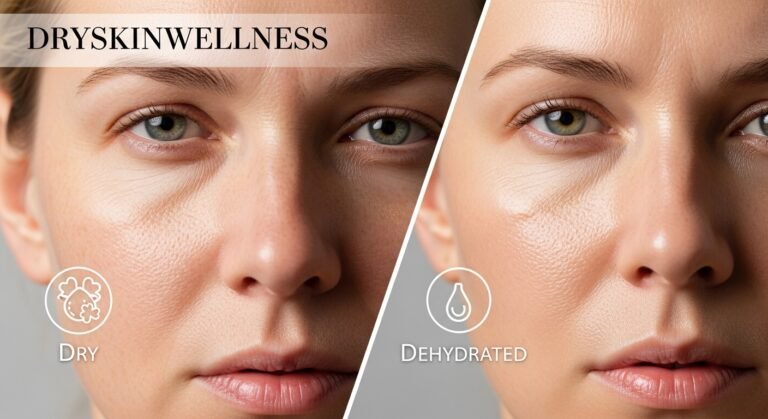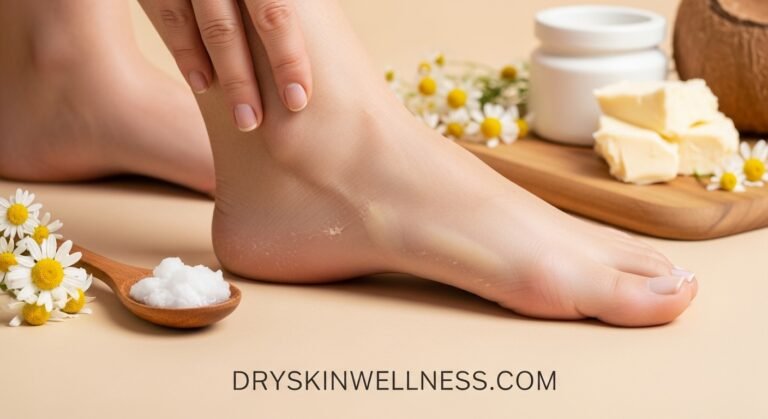How Can Dry Skin Cause Blisters?
Dry skin is a common condition that affects people of all ages. It occurs when the skin does not retain enough moisture, leading to rough, scaly, and sometimes itchy patches on the body. While dry skin is usually harmless, how can dry skin cause blisters?
Causes of Dry Skin
There are several reasons why a person may have dry skin. Some of the most common causes include:
Extreme temperatures
Cold, harsh weather can strip the skin of its natural oils, causing it to become dry and cracked.
Hot showers or baths
Prolonged exposure to hot water can also remove the natural oils from the skin, leading to dryness.
Harsh soaps or detergents
Using products that contain harsh chemicals or fragrances can irritate the skin and cause it to dry.
Medical conditions
Certain conditions, such as eczema, psoriasis, and hypothyroidism, can contribute to dry skin.
How Can Dry Skin Cause Blisters?
While most people associate blisters with sunburns or friction from shoes, dry skin can also be a culprit. When the skin is dry and cracked, it becomes more vulnerable to damage from external irritants such as chemicals or allergens. This can lead to blisters forming on the affected area.
In addition, people with dry skin may have a weakened skin barrier. The top layer of our skin acts as a protective barrier against bacteria, viruses, and other harmful substances. When this barrier is compromised due to dryness, it becomes easier for blisters to form.
Preventing Blisters Caused by Dry Skin
Keeping the skin hydrated and moisturized is essential to prevent blisters from forming on dry skin. This can be done through a few simple steps:
Drink plenty of water
Staying hydrated from the inside out is crucial for maintaining healthy skin. Aim to drink at least eight glasses of water a day.
Use mild soaps and detergents
Avoid using harsh products on your skin and opt for gentle, fragrance-free options instead.
Take shorter, more excellent showers or baths: Limiting your exposure to hot water can help prevent moisture loss from the skin.
Moisturize regularly
After bathing, moisturize your skin while it is still damp to lock in moisture.
Avoid irritants: If you know that certain products or substances irritate your skin, try to avoid them as much as possible.
Treatment for Blisters Caused by Dry Skin
If blisters form on dry skin, treating them properly is essential to avoid further damage. Here are some steps you can take:
Avoid popping or picking at the blisters
This can lead to infection and slow healing.
Keep the affected area clean
Wash it with mild soap and water and pat it dry gently.
Apply a healing ointment
Use a topical ointment, such as petroleum jelly or aloe vera, to help soothe and heal the blisters.
Cover with a bandage
If the blisters are in an area prone to rubbing or irritation, cover them with an application to protect them.
Consult a doctor if necessary: If the blisters are severe or do not heal after a few days, it’s best to consult a doctor for proper treatment.
Water Blister
Small water blisters on the skin can be ordinary for dry skin, but it’s not something to ignore. These blisters can be uncomfortable and painful and may increase the risk of infection if not treated properly. By understanding the causes and taking preventive measures, you can keep your dry skin under control and avoid blisters altogether.
FAQ
Can dry skin cause sores?
Yes, dry skin can cause sores in some cases. When the skin becomes extremely dry and cracked, it can lead to open wounds or sores. These can be painful and may take longer to heal due to the compromised skin barrier. Keeping your skin moisturized and protected is essential to prevent these sores from forming.
How do you dry skin blisters?
To treat dry skin blisters, follow the above-mentioned steps:
Avoid popping or picking at them.
Keep the affected area clean.
Apply a healing ointment.
Cover with a bandage if necessary.
Seek medical help.
It’s also essential to address the root cause of the dry skin to prevent further blisters from forming.
Are blisters a symptom of eczema?
Yes, blisters can be a symptom of eczema. Eczema is a chronic skin condition that causes dry, itchy, and inflamed patches on the skin.
These patches may sometimes become blistered due to excessive dryness or irritation. If you have eczema and notice blisters forming on your skin, it’s essential to consult a doctor for proper treatment.
Managing your eczema symptoms can help prevent blisters and other skin issues from occurring. So, maintaining healthy skin is crucial in avoiding any potential complications or irritations caused by dry skin or medical conditions like eczema.
These patches may sometimes become blistered due to excessive dryness or irritation. If you have eczema and notice blisters forming on your skin, it’s essential to consult a doctor for proper treatment.
Conclusion
In conclusion, how can dry skin cause blisters? While dry skin is a common and usually harmless condition, taking care of your skin is essential to avoid potential complications such as blisters. Keeping your skin hydrated and moisturized and avoiding harsh products and irritants can prevent blisters from forming and maintain healthy, smooth skin.
Remember to pay attention to changes in your skin and seek medical help if needed. With proper care, you can keep dry skin under control and avoid the discomfort of blisters.
So, be mindful of taking good care of your skin and keeping it hydrated to prevent potential issues like blisters. It’s also important to seek medical help if you notice any concerning changes in your skin. Dry skin may seem minor, but it’s always best to take care before it leads to more severe problems. With these tips, you can keep your skin healthy and glowing all year round. So don’t neglect your dry skin – give it the love and care it deserves!



